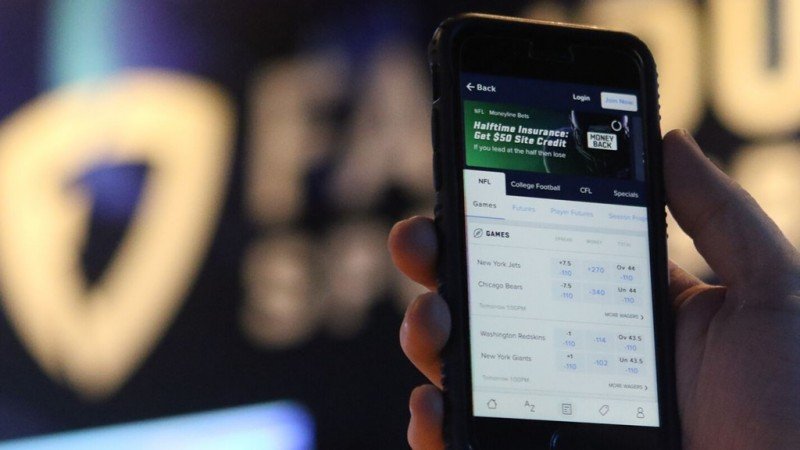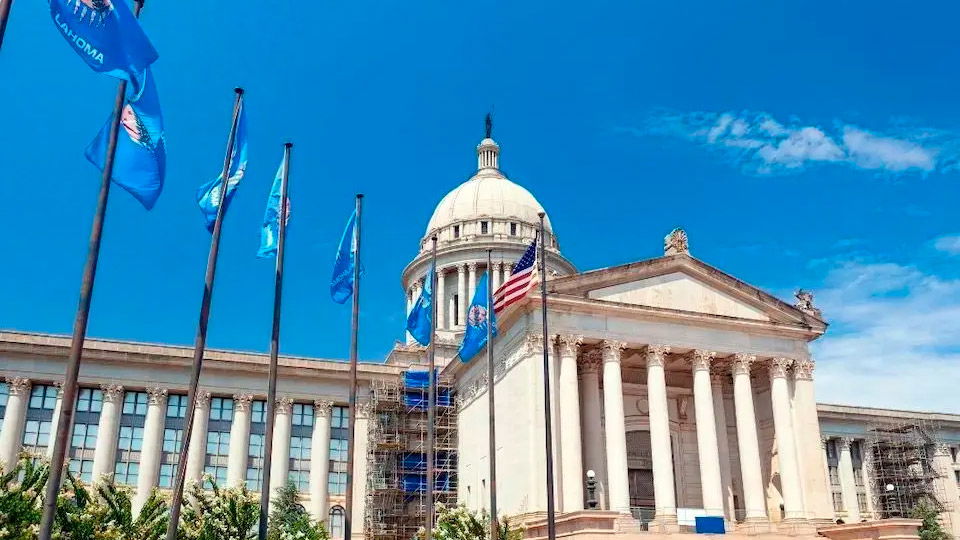DraftKings, FanDuel greenlighted to stay live in Connecticut after deal with tribes

DraftKings and FanDuel were greenlighted to continue operating in Connecticut, the Department of Consumer Protection (DCP) said Thursday, following concerns they could temporarily go offline due to the state's new gaming bill effective July 1. Yahoo Fantasy Sports announced it is no longer able to run paid fantasy sports contests, given the new tethering model requirement.
The Mashantucket Pequot Tribal Nation and the Mohegan Tribe each received provisional licenses to operate fantasy sports and will contract with DraftKings and FanDuel, respectively, according to DCP. The Connecticut Lottery was also granted a provisional license but has not yet said if it will contract with any platform, Hartford Courant reports.
Connecticut’s new bill legalizing sports betting and online gaming could have temporarily block DraftKings and FanDuel from operating paid fantasy sports in Connecticut beginning July 1, due to the requirement they participate in a lengthy licensing process. Legislators addressed that issue in the recent budget implementer bill, creating a process by which the companies could be licensed provisionally, in contract with one of the state’s main gaming operators. Provisional licenses for fantasy sports companies will last until Sept. 30 or until all final licenses have been issued, whichever comes first.
“This short-term step allows for the continuation of fantasy sports in Connecticut as we continue to move forward to modernize our gaming landscape in Connecticut,” Gov. Ned Lamont said in a statement Thursday. “Thanks to our partnership with the Mohegan Tribe, the Mashantucket Pequot Tribe, and the Connecticut Lottery Corporation, our state will have a competitive, and nation-leading model for wagering both in-person and online.”
DraftKings and FanDuel were required to pay back fees as compensation for having previously operated in Connecticut. According to the DCP, FanDuel paid the state $325,914.91, while DraftKings paid $832,383.45.
“We are proud to have been able to approve these provisional licenses, a process designed to protect consumers and create a fair marketplace, so that these businesses may legally operate fantasy contests in Connecticut,” Consumer Protection Commissioner Michelle H. Seagull said in a statement. “We look forward to continued work with both tribes and the Connecticut Lottery Corporation.”
However, smaller fantasy sports operators that were not able to secure provisional licenses will be forced to cease operations in Connecticut. A company called Prize Picks, for example, emailed Connecticut users Thursday to say they would be going offline. “This decision was outside of our control, and we will do our best to be back in CT as soon as possible,” the company wrote. “In the meantime, please reach out to your legislators and tell them how much you enjoyed playing daily fantasy sports!”
In a statement last Thursday, Yahoo Fantasy Sports said it "supports common sense paid fantasy laws and regulations that: a) clearly differentiate between paid and free offerings; b) create rules that are technologically feasible, commercially reasonable, and appropriate for the specific offering; and c) promote a competitive environment so that users have choices. Unfortunately, the fantasy sports legislation that passed in Connecticut is lacking in both (b) and (c)."
The company explained that current legislation tethers the operation of fantasy sports to a local master wagering licensee, which does not happen in any other state that has passed fantasy legislation. "The tethering requirement makes operating in Connecticut economically unviable for Yahoo and smaller fantasy operators and startups. This reduces customer choice, further deepening a moat around only the largest operators that can afford to operate under this model. These kinds of barriers to entry are harmful to consumers, who will now have less choice when it comes to where they can participate in paid fantasy contests," the company added. "We will gladly work with the state of Connecticut to evolve the existing legislation, and look forward to one day being able to offer our paid fantasy products to the great residents of Connecticut."
The fantasy sports industry has complained since the passage of Connecticut’s gaming bill that the legislation is overly strict in limiting the number of betting operators in the state. Lawmakers say those limits are necessary given the need to abide by the state’s compact with the Mohegan and Mashantucket Pequot tribes.
In a statement Thursday, Peter Schoenke of the Fantasy Sports & Gaming Association said the group was “disappointed Connecticut fantasy sports players will not be able to continue to play in many of the contests they’ve grown to love.”

















































